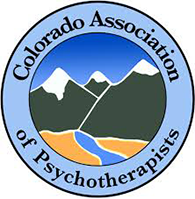I know people who feel like they’ve wasted years of their lives because of poor choices. They spent years in a relationship that was toxic, years with an addiction, years at a job where they weren’t fulfilled. But you have to realize, nothing you have been through is ever wasted. Your past experiences, good and bad have deposited something on the inside of you. Those challenges have sharpened you, to make who you are today.
“Really? You want me to appreciate my poor choices?” you’re asking.
Absolutely. AND I want you to make better choices. But let’s start where we need to start – with appreciating your poor choices.
Most often, making better choices requires that we reformat from the poor choices.
No poor choice need be wasted.
So what are the benefits of poor choices?
Poor choices benefit us by –
Clarifying what we do not want. Sometimes a client will come to me for psychotherapy, hypnotherapy, or coaching, and they are very clear about what they don’t want. “I don’t ever want to marry a man like that again.” “I never want to go through bankruptcy again.” “I was trapped in a dead-in job.” “I let myself drift into the addiction.”
We feel the pain. We don’t want to return. We don’t want to repeat. This is a good thing.
Clarifying what we truly want. It’s sometimes a greater challenge to get to what they really do want rather than stay focused on what didn’t work well.
We often learn best by contrast and comparison. “I want this. I don’t want that.” The more intense the impact, the clearer we become. However, no need to wait for a piano to drop on your head to make better choices.
So I ask, “Knowing now what you do not want, what do you want instead?” That shifts the focus from the poor choices to creating better choices by beginning to see in your mind’s eye new possibilities and new choice options.
Keeping us humble. Poor choices remind us of our connection to each other. We’re alike. We share our humanity. We collectively share the impact of our choices and our wisdom.
Poor choices accentuate that we are more alike than different. This means we’re never alone.
Deepening our compassion. When we’ve been through the confusion and pain of poor choices, when we’ve paid the piper, or when we’ve taken our lumps, our heart potentially opens wider with greater understanding, patience, and compassion. Poor choices are never meant to take us to (self- or other-) condemnation, shame, or blame. Guard against bitterness.
Yes, you are meant to take responsibilities for your choices. No, you are not meant to beat up on yourself because of the poor choices.
Providing humorous stories. Sometimes our poor choices create very interesting stories. If we don’t learn to laugh at our mistakes, we will never fully enjoy our humanity. When you think about the stories that you have laughed at most, they have inevitably contained poor choices. I’m not minimizing how devastating the results can be for seriously poor choices. However, grace is often deeply connected to and enriched by humor.
Lighten up – just ask Thomas Edison . . . more to come about his choices.
Elevating us. No need to spiral into the quagmire. Our poor choices become points of wisdom gathering and insight expansion. Poor choices can serve as stepping stones or steps upward to a higher quality of life, that we might not have considered otherwise in comfort and complacency. Poor choices can always lead us to greater maturity and better choices, resulting obviously in better outcomes.
Stop punishing yourself by wasting time ruminating about poor choices. There is no benefit doing laps around the pig pen. Jesus taught us to avoid tossing pearls in the direction of pigs. Stop wasting your precious energy. Stop feeding your inner piggies. And remember, your inner piggies don’t fly.
Providing valuable information to shift change and reach goals. With persistence, we learn how to correct course with better and better choices – more consistently refined, until we achieve the desired result.
In search of the electric light bulb, Thomas Edison, along with his “Muckers” (lab associates), conducted thousands of experiments. Thousands. Each step required the creation of a new element from vacuumed and sealed glass containers to switches, wires, and meters. They were in search of a long-lasting filament which eventually turned out to be carbonized cotton thread.
Cotton thread provided 13 hours of continuous light. That’s when he filed his first lightbulb patent on January 27, 1880. Continued refinement led to carbonized bamboo, which produced over 1,200 hours of continuous light.
On September 4, 1882, the first large-scale test of Edison’s lights occurred when 25 buildings in New York City’s financial district were illuminated. That must have been an amazing sight!
Imagine if Tom had beat up on himself and quit a few thousand poor choices earlier . . .



Right on! A good reminder to start off the day. Thank you.